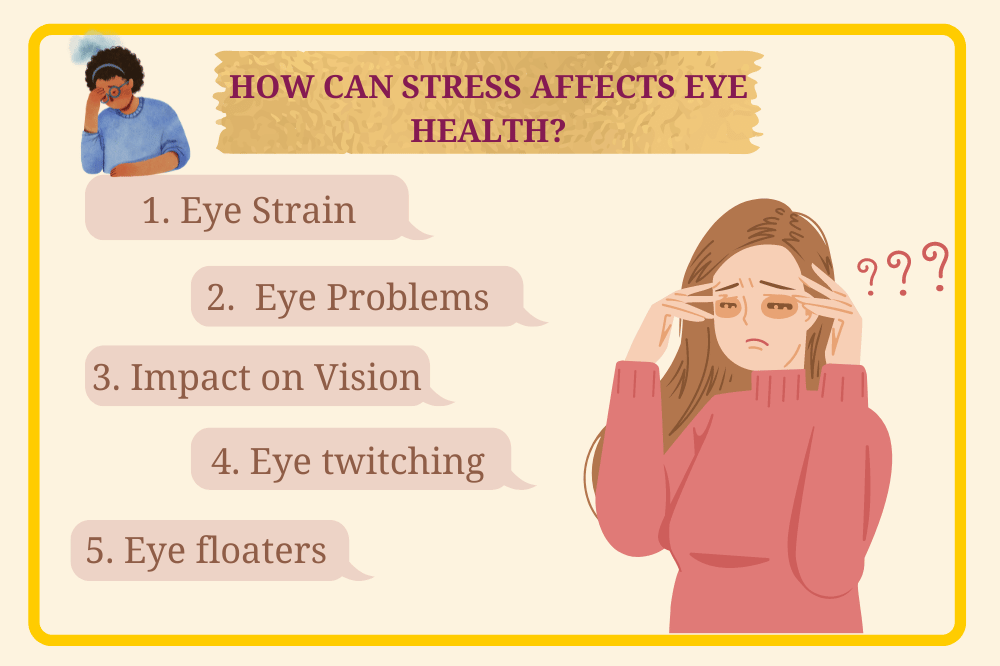Can Stress Affect Eye Health, and if So, How Can You Manage It?

Can Stress Affect Eye Health, and if So, How Can You Manage It?
Can Stress Affect Eye Health, and If So, How Can I Manage It?
Stress is something everyone experiences from time to time, but did you know it can also affect your eye health? Understanding how stress impacts your eyes can help you take steps to protect your vision. Here’s how stress can harm your eyes and what you can do to manage it.
How Stress Affects Eye Health
- Eye Strain: When you are stressed, you might spend long hours staring at screens or reading. This can lead to eyestrain. Symptoms include dry eyes, blurred vision, and headaches. Stress can make these symptoms worse.
- Increased Risk of Eye Conditions: High stress levels can increase your risk of developing certain eye conditions. For example, stress may contribute to the development of glaucoma, a serious condition that can damage the optic nerve and lead to vision loss.
- Worsening of Existing Eye Problems: If you already have eye issues, like dry eye syndrome or blepharitis (inflammation of the eyelids), stress can make them worse. Stress can lead to more frequent flare-ups and increased discomfort.
- Impact on Vision: Chronic stress can lead to vision problems, such as blurry vision or seeing flashes of light. This is because stress affects the way your brain processes visual information.
How to Manage Stress for Better Eye Health
- Take Breaks from Screens: Follow the 20-20-20 rule: every 20 minutes, look at something 20 feet away for at least 20 seconds. This helps reduce eye strain caused by prolonged screen use.
- Practice Relaxation Techniques: Techniques such as deep breathing, meditation, and yoga can help reduce stress. These practices can also help ease the physical symptoms of stress, including eye strain.
- Get Regular Exercise: Exercise helps manage stress and improve overall health. Even a short walk can help clear your mind and reduce tension.
- Maintain a Healthy Diet: Eating a balanced diet with plenty of fruits and vegetables supports eye health. Foods rich in vitamins and antioxidants can help protect your eyes from stress-related damage.
- Get Enough Sleep: Quality sleep is important for managing stress and maintaining eye health. Aim for 7-9 hours of sleep each night to help your body and eyes recover.
- Stay Hydrated: Drinking plenty of water helps keep your eyes moist and reduces the risk of dry eyes, especially if you are stressed and tend to forget to drink enough fluids.
- Seek Professional Help: If stress is overwhelming, consider talking to a mental health professional. They can help you develop strategies to manage stress and improve your overall well-being.
Conclusion
Stress can negatively impact your eye health in several ways, including causing eye strain and worsening existing conditions. By managing stress through relaxation techniques, exercise, a healthy diet, adequate sleep, and staying hydrated, you can protect your vision and improve your overall well-being. If stress becomes too much to handle on your own, seek help from a mental health professional. Taking care of your mental and physical health is crucial for maintaining healthy eyes.


You May Also Like

Ginger Water Benefits: How it Can Do Wonders
26/08/2023
Benefits of Chia Seeds for Hair
12/08/2024